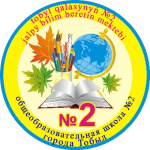By order of the Minister of Education dated May 2, 2025, changes were made to the requirements for educational organizations to provide distance learning. Zakon.kz .
In particular, the new version approved:
Rules for the organization of the distance learning educational process in organizations of secondary, additional, technical and vocational, and post-secondary education, including in case of adverse weather conditions, as well as during the introduction of a state of emergency, restrictive measures, including quarantine, in the relevant administrative-territorial units (at individual facilities), and when emergency situations are declared.
Rules for organizing the educational process in the form of online learning in educational organizations that implement educational curricula for technical and vocational, post-secondary education.
Requirements for educational organizations to provide distance learning.
Thus, it says that distance learning in organizations of secondary, technical and vocational, post-secondary education (TiPPO), with the exception of organizations implementing educational programs for medical, pharmaceutical and pedagogical education, is provided in the following cases::
adverse weather conditions;
the introduction of a state of emergency, restrictive measures, including quarantine, in the relevant administrative-territorial units (at individual facilities), the declaration of emergency situations;
availability of the conclusion of the medical advisory commission on the student's health status;
students' participation in international, national training camps, sports competitions, intellectual and creative contests and festivals;
applications from parents or other legal representatives.
Distance learning is carried out through the interaction of participants in the educational process at a distance, regardless of their location, including through the use of information and communication technologies and telecommunication facilities.
When organizing distance learning in the above cases in secondary education organizations:
the organization of secondary education provides students with Standard curricula for academic subjects, calendar and thematic plans, textbooks, schedules for conducting summative assessment for the section/end-to-end topic (COP) and summative assessment for the quarter (SOC), current, intermediate and state final attestation;
parents or other legal representatives independently organize the student's training sessions and socialization through additional education (sections, sports, creative, educational circles);
the student learns the curricula of the appropriate level of education, timely passes the current (SOC), intermediate and final certification in the organization of secondary education in full-time format at the location of the organization of secondary education, where he is assigned;
Based on the results of the current, interim and final attestation, the pedagogical council makes an appropriate decision to extend the student's distance learning or transfer it to a traditional learning format.;
in the process of learning, the student turns to subject teachers on poorly understood topics, in other cases, if necessary, to a school psychologist, a medical professional, an inspector of juvenile affairs, a social educator of a secondary education organization.;
the student participates in sports, school and extracurricular activities of the educational organization;
the organization of secondary education, to which the student is assigned, provides him with free use of sports, reading rooms, assembly halls, computer labs and a library.
The list of disciplines and modules allowed for distance learning, regardless of the form of study, is determined by the TiPPO organization independently and approved by the order of the head.
It is indicated that for correspondence or evening studies, as well as external studies in TiPPO organizations, it is allowed to transfer to distance learning no more than 20% of the total academic hours/ credits for the entire period of study in accordance with the work curriculum, with the exception of academic hours/credits provided for the organization of industrial training and professional practice, by specialty and qualifications.
The order will be effective from May 19, 2025.

